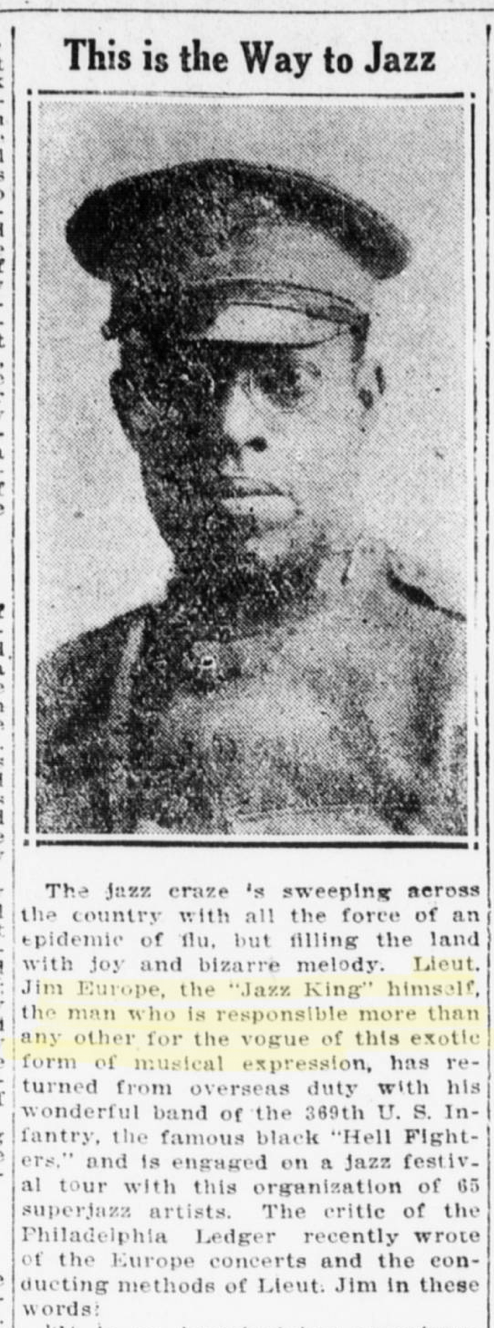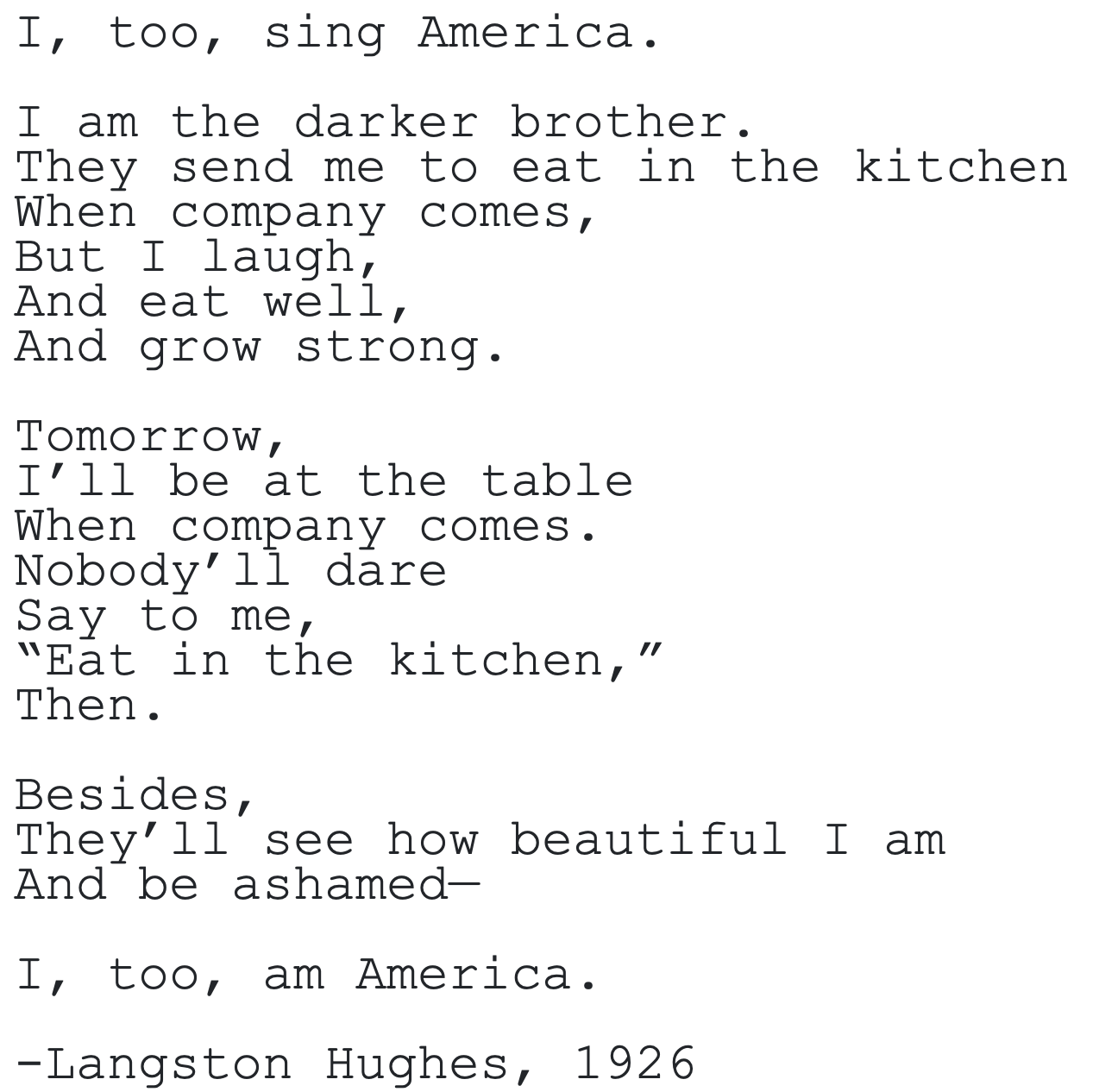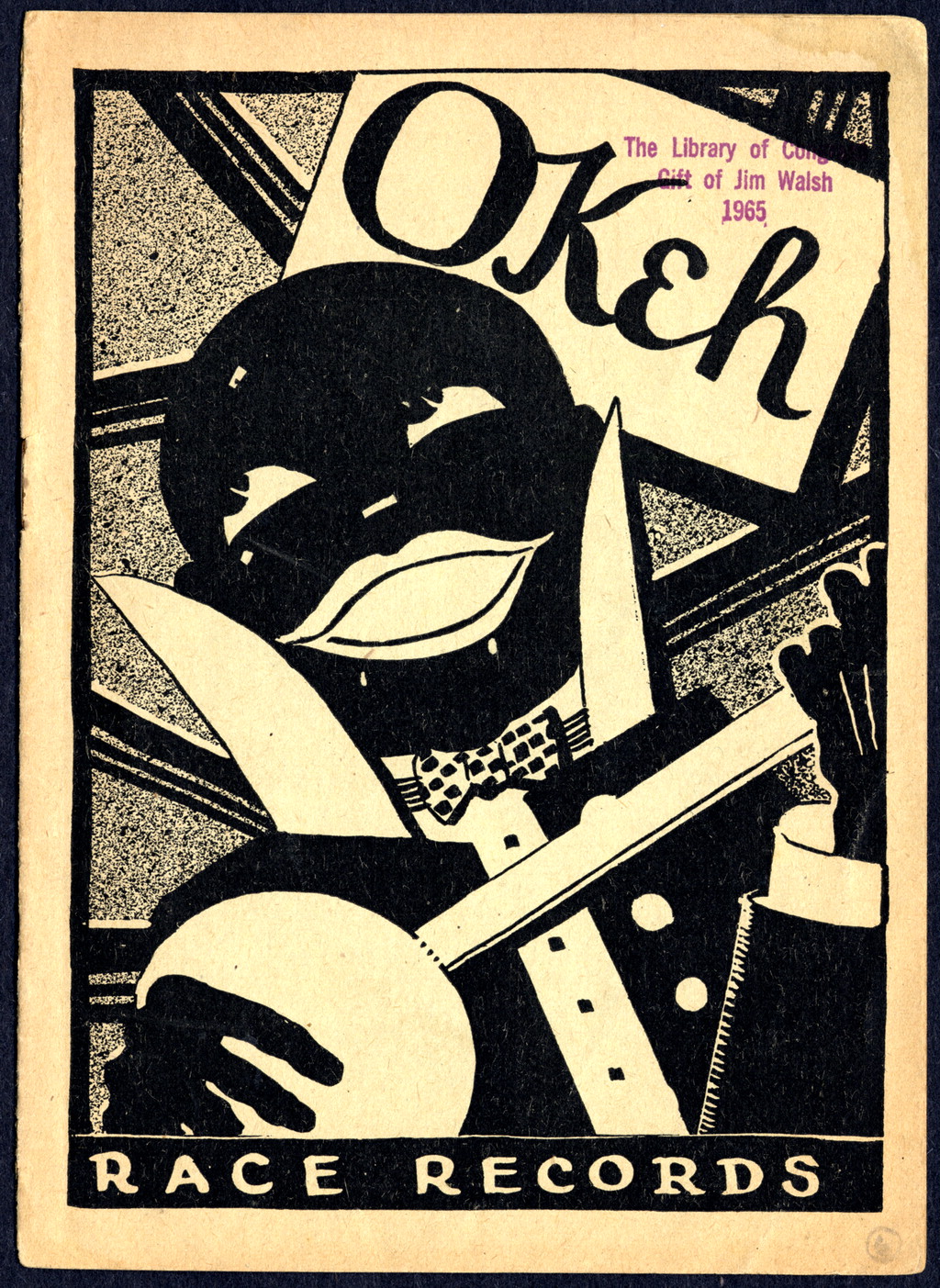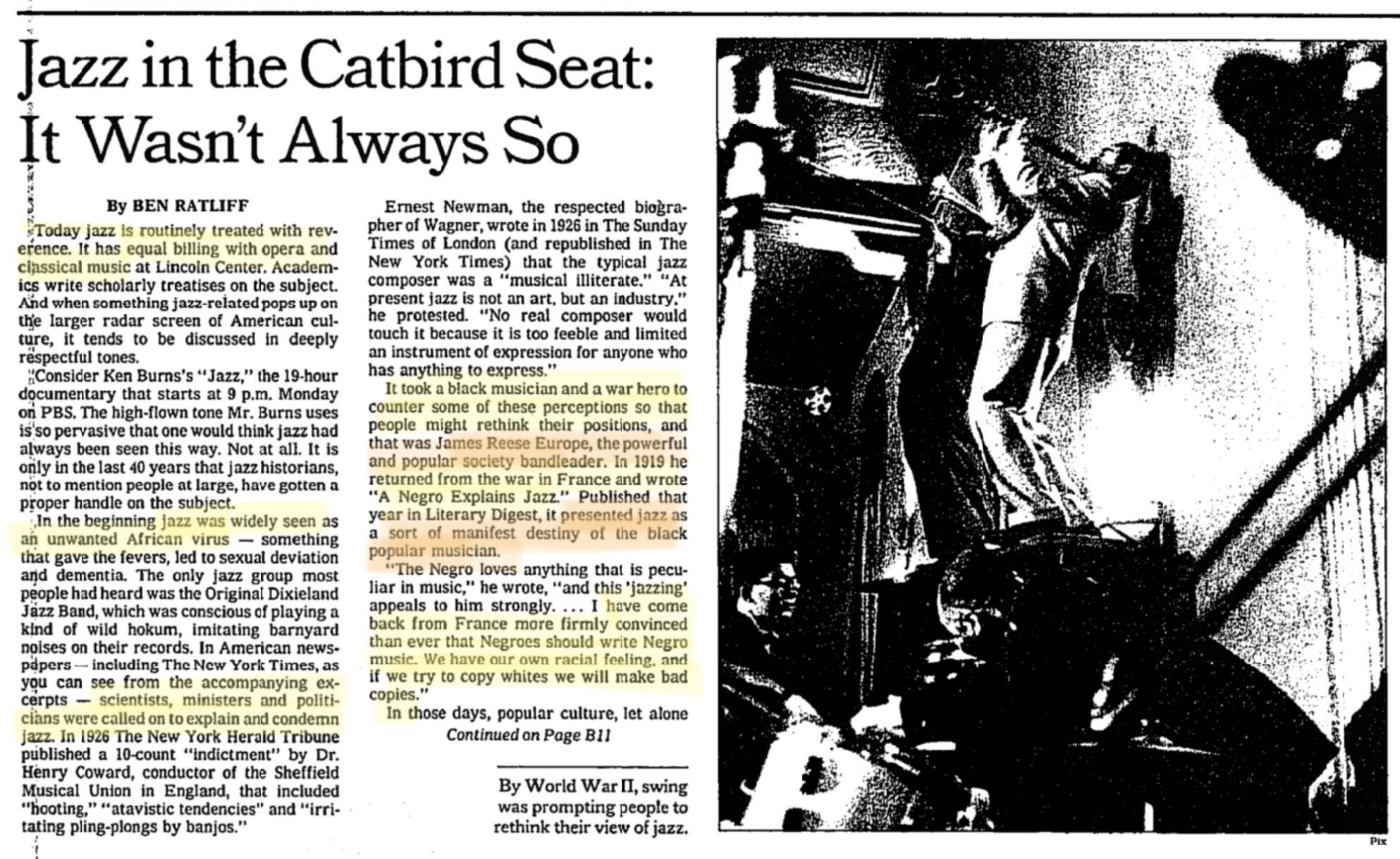
May 3, 1919. Harrison Telegraph




Aaron Douglas's "Song of the Towers," a 1966 version. State of Wisconsin, Executive Residence
By blazing a trail for working-class musicians to be recognized as skilled professionals, the greats of the Harlem Renaissance who succeeded James Reese Europe had the time and space to be able to share their thoughts about what it meant to be African-American and receive commensurate credit and compensation in a decade of black appreciation. Jazz became the symbol of the modern African-American and all he could accomplish.

May 3, 1919. Harrison Telegraph

Excerpt from personnal interview with Professor David Gilbert, January 13, 2020
James Reese Europe lifted ragtime from the backroom and validated it, bringing it to the mainstream.
In the 1920s, “race records” surged in popularity. Catering to the black community and featuring black musicians, these race records seemed to be a boon to black music. In contrast, black musicians often wrote songs for whites but didn’t receive proper credit or compensation. Even decades later, white musicians like Elvis Presley were wrongly credited with developing certain genres, while the music had been pioneered by African-Americans.
"Despite the fact that bands like The Beatles and the Rolling Stones were clearly -- and openly! -- influenced by black artists, music critics and fans worship THESE bands as the pinnacle of rock 'n' roll..."
- Jack Hamilton, 2016

 Okeh Race Records Form No. 2566, c. 1926. Library of Congress
Okeh Race Records Form No. 2566, c. 1926. Library of Congress "A lot of people seem to think I started this business. But rock 'n' roll was here a long time before I came along. Nobody can sing that kind of music like coloured people. Let's face it: I can't sing like Fats Domino can. I know that."
-Elvis Presley, 1957
James Reese Europe planted the seeds of innovation upon which countless generations of musicians will be able to build. His unsung legacy is resurfacing as musicians learn about and honor his accomplishments.

January 6, 2001. The New York Times
"I know he is an inspiration for the many generations who have come behind him. Maybe one of jazz’s most famous musicians, Duke Ellington, was deeply indebted to James Reese Europe. So much so, there’s a photograph of Duke Ellington standing at James Reese Europe's grave with a wreath. I’ve seen thousands of photos of Duke Eillington, but only one where he’s at someone’s grave. So with that one image, you are able to recognize just how important a person James Reese Europe was in the art we practice today as jazz musicians."
- Jason Moran, excerpt from personnal interview, February 12, 2020
". . . he brought a new dignity to Negro musicians. And as the leader of a kind of Negro musical avant-garde, he gave a new thrust to the development of Afro-American music. He was the real initiator of the Jazz Age and a mentor to countless numbers of Jazz Age musicians."
-Gunther Schuller, Musings: The Musical Worlds of Gunther Schuller